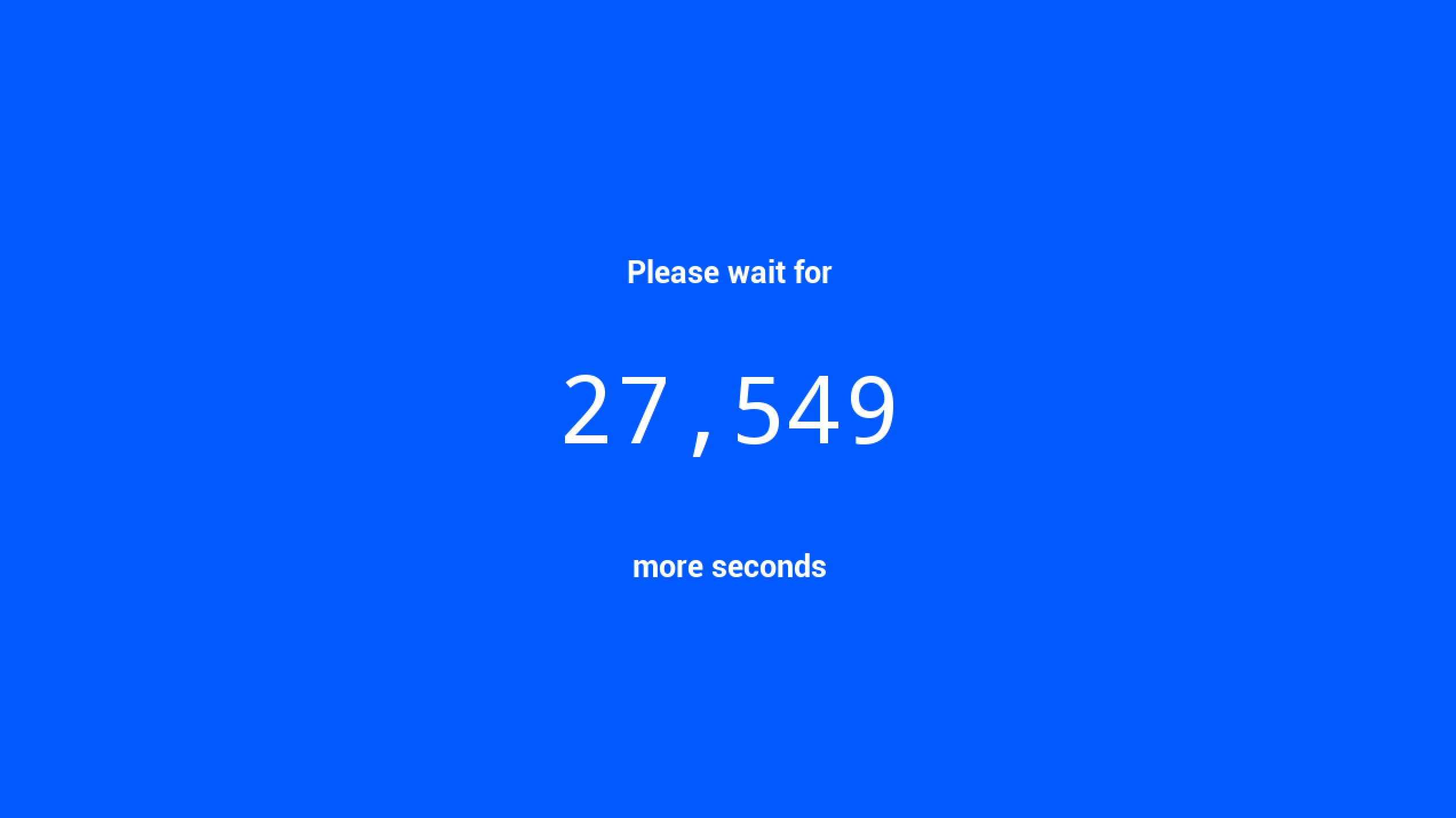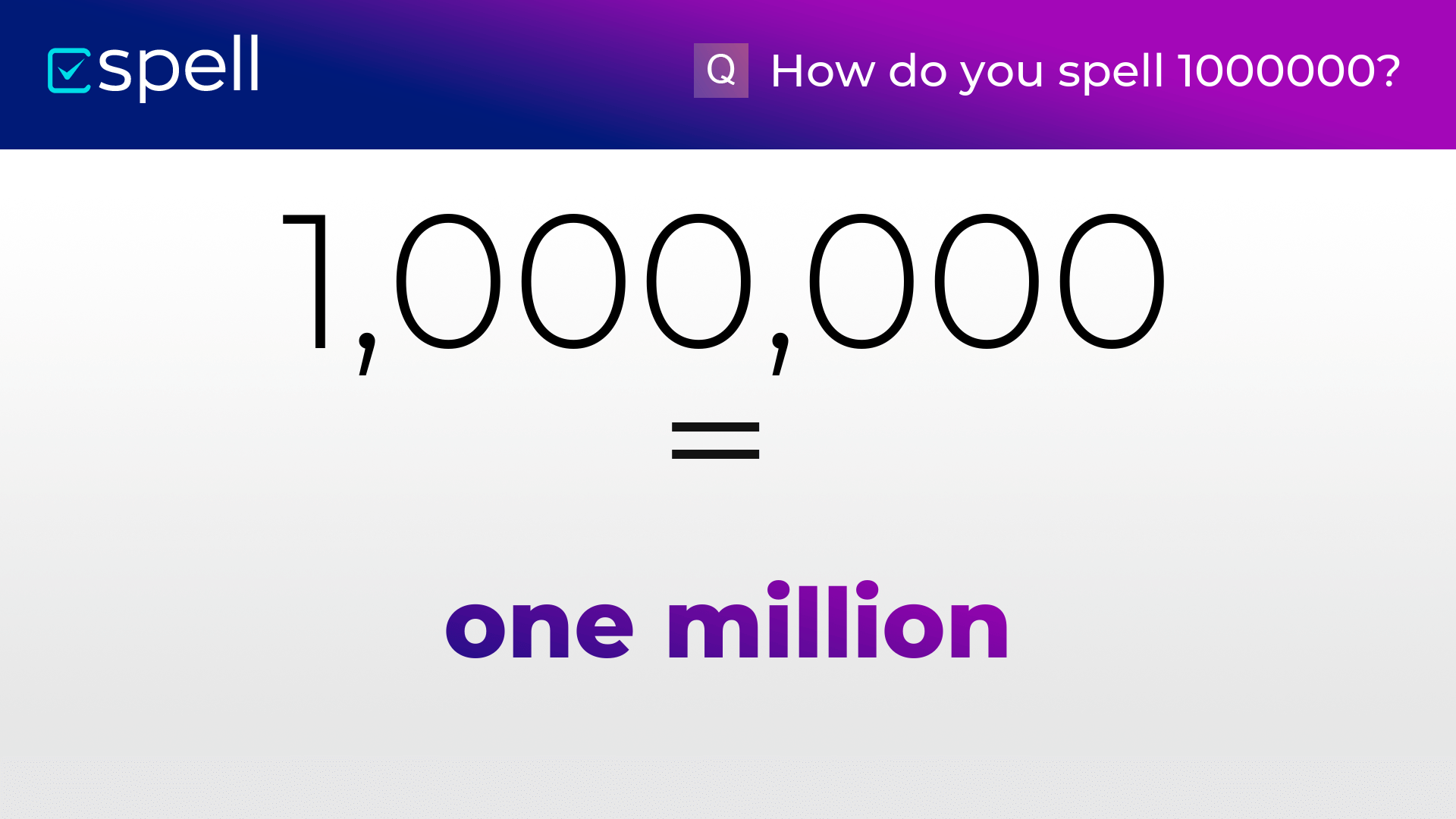Have you ever wondered how long a million seconds truly is? When we hear the term "a million," it often feels like an impossibly large number. Yet, when applied to seconds, it might not be as overwhelming as you think. A million seconds is a fascinating measure of time that can help us better understand how we perceive durations in our daily lives. Whether you're a student learning about time conversions, a curious individual exploring numbers, or someone trying to grasp the concept of time on a larger scale, this article will provide clarity and insight into the question: how many years is 1000000 seconds?
Breaking it down, a million seconds equates to approximately 11.57 days. While this might sound surprising at first, it highlights just how quickly seconds add up. This figure is not only useful for academic purposes but also for real-world applications like project timelines, event planning, and even personal goal setting. Understanding how these conversions work can help you manage time more effectively and appreciate its fleeting nature. So, let’s dive deeper into the mathematics and practical implications of this intriguing number.
By the end of this article, you’ll have a comprehensive understanding of time conversions and the significance of a million seconds. We’ll explore everything from basic calculations to the broader implications of time measurement, all while answering common questions like "How many years is 1000000 seconds?" and "Why does this matter?" Whether you're here for curiosity or necessity, you'll leave with a newfound appreciation for how time shapes our lives.
Read also:Unlocking The Secrets Of Naughty America Ads A Comprehensive Guide
Table of Contents
- How Many Years Is 1000000 Seconds?
- Why Does a Million Seconds Matter?
- How Do You Calculate a Million Seconds?
- What Can You Do in a Million Seconds?
- How Does a Million Seconds Compare to Other Time Units?
- Is a Million Seconds a Lot?
- Practical Applications of a Million Seconds
- Frequently Asked Questions
How Many Years Is 1000000 Seconds?
Now that we've introduced the concept of a million seconds, let's address the central question: how many years is 1000000 seconds? To answer this, we need to break down the conversion process step by step. A year typically consists of 365 days, and each day has 24 hours. Each hour contains 60 minutes, and each minute is made up of 60 seconds. By multiplying these values, we can determine how many seconds are in a year and then calculate how many years a million seconds equates to.
Here’s the breakdown:
- 1 minute = 60 seconds
- 1 hour = 60 minutes = 3,600 seconds
- 1 day = 24 hours = 86,400 seconds
- 1 year = 365 days = 31,536,000 seconds
Dividing 1,000,000 seconds by the number of seconds in a year gives us approximately 0.0317 years. In simpler terms, a million seconds is just over 11.57 days, which translates to roughly 0.03 years. While this might seem insignificant in the grand scheme of things, it’s a useful figure for understanding how smaller units of time accumulate into larger ones.
Why Does This Conversion Matter?
Understanding how to convert seconds into years is more than just a mathematical exercise. It’s a practical skill that can help you grasp the scale of time in various contexts. For instance, if you’re working on a project with a tight deadline, knowing how many days or weeks a certain number of seconds represents can help you allocate your time more effectively. Similarly, this knowledge can be applied to scientific research, financial planning, and even personal goal setting.
Why Does a Million Seconds Matter?
While a million seconds might not seem like a significant amount of time compared to a lifetime, it holds considerable importance in various scenarios. Why does a million seconds matter? To answer this, we need to explore its relevance in everyday life, professional settings, and even global contexts.
In personal terms, a million seconds can represent a meaningful milestone. For example, if you’re tracking how long it takes to complete a task or achieve a goal, knowing that it equates to about 11.57 days can provide a sense of urgency and motivation. It’s a manageable timeframe that encourages productivity without feeling overwhelming.
Read also:Discovering Aung15 Insights Achievements And Influence
Professionally, a million seconds can be a useful benchmark for project management. Many tasks, such as software development cycles or marketing campaigns, are often measured in weeks or months. Breaking these down into seconds can help teams better allocate resources and set realistic deadlines. On a global scale, a million seconds can also represent the duration of events like natural disasters or humanitarian crises, emphasizing the importance of timely responses.
How Does This Relate to Human Perception of Time?
Humans often struggle to comprehend large numbers, especially when it comes to time. A million seconds might feel abstract until you realize it’s slightly over 11 days. This relatable timeframe can help individuals and organizations better grasp the significance of time-sensitive decisions. For instance, if you’re saving money or working toward a fitness goal, knowing that a million seconds is a manageable period can inspire action and commitment.
How Do You Calculate a Million Seconds?
Calculating a million seconds involves a straightforward process of converting smaller units of time into larger ones. How do you calculate a million seconds? Let’s break it down step by step to ensure clarity and accuracy.
Start by understanding the basic time conversions:
- 1 minute = 60 seconds
- 1 hour = 60 minutes = 3,600 seconds
- 1 day = 24 hours = 86,400 seconds
- 1 year = 365 days = 31,536,000 seconds
Now, divide 1,000,000 seconds by the number of seconds in each unit:
- 1,000,000 ÷ 60 = 16,666.67 minutes
- 16,666.67 ÷ 60 = 277.78 hours
- 277.78 ÷ 24 = 11.57 days
As you can see, a million seconds equals approximately 11.57 days. This calculation is not only useful for answering the question of how many years is 1000000 seconds but also for understanding how smaller units of time add up to larger ones.
What Tools Can Help with These Calculations?
While manual calculations are effective, there are numerous tools available to simplify the process. Online time converters, smartphone apps, and even spreadsheets can help you quickly determine how many days, hours, or years a given number of seconds represents. These tools are especially useful for professionals who need to manage time-sensitive tasks efficiently.
What Can You Do in a Million Seconds?
With approximately 11.57 days at your disposal, what can you realistically achieve in a million seconds? What can you do in a million seconds? This question highlights the potential within a seemingly short timeframe.
Here are some examples:
- Read several books or complete a course
- Travel to multiple destinations
- Complete a small home renovation project
- Train for a fitness goal like running a 5K
While 11 days might not seem like much, it’s enough time to make meaningful progress on personal or professional goals. The key is to use this time wisely and stay focused on your objectives.
How Does a Million Seconds Compare to Other Time Units?
Understanding how a million seconds compares to other time units can provide additional context. For instance, a billion seconds is roughly 31.7 years, while a trillion seconds is over 31,000 years. This comparison underscores the vast differences in scale when dealing with large numbers.
Is a Million Seconds a Lot?
Is a million seconds a lot? The answer depends on the context. In everyday life, it might not seem significant, but in scientific or financial terms, it can represent a substantial duration. For example, a million seconds could be the runtime of a critical experiment or the duration of a financial quarter.
Practical Applications of a Million Seconds
A million seconds has practical applications in fields like project management, education, and even personal development. By understanding its value, you can make more informed decisions about time allocation and goal setting.
Frequently Asked Questions
How many years is 1000000 seconds? A million seconds is approximately 0.03 years or about 11.57 days.
Why is understanding time conversions important? It helps you manage time effectively and make informed decisions in various contexts.
What tools can assist with time calculations? Online converters, apps, and spreadsheets are excellent resources for simplifying these calculations.
External Link: Time and Date Calculator
In conclusion, understanding how many years is 1000000 seconds provides valuable insights into time management and its significance in different scenarios. By breaking down this concept, we can better appreciate the fleeting nature of time and use it to our advantage.

